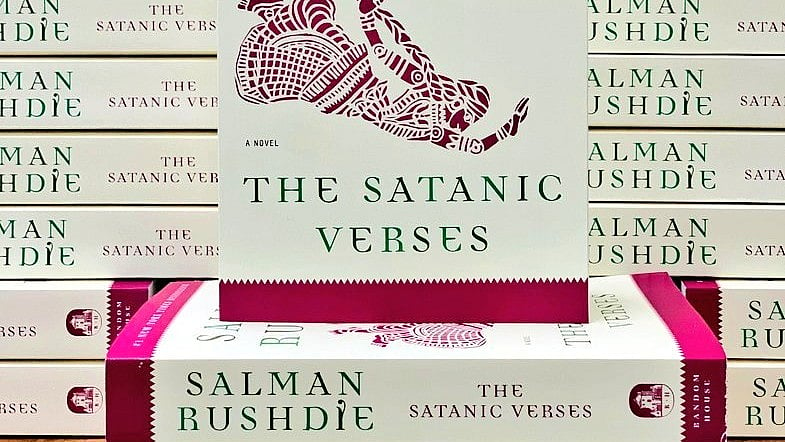Art and Culture
Let’s give it a rest now! Supreme Court dismisses plea to ban ‘Satanic Verses’
Salman Rushdie’s controversial book was originally banned in 1988 over law-and-order concerns in the wake of widespread protests from the Muslim community

The Supreme Court on Friday declined to entertain a petition seeking a fresh ban on Salman Rushdie’s novel The Satanic Verses — which has been at the heart of a longstanding controversy — and has refused to revisit the decades-long dispute over the book. The case was heard by a bench of justices Vikram Nath and Sandeep Mehta, who observed, “You are effectively challenging the judgement of the Delhi High Court,” before dismissing the plea.
The petition, filed by advocate Chand Qureshi, argued that the book had become available again following the Delhi High Court’s order from November last year. The High Court had closed proceedings in a challenge to the Rajiv Gandhi government’s 1988 ban on the book’s import, stating that since authorities could not produce the relevant notification, “it has to be presumed that it does not exist”.
Published: undefined
India had imposed the ban in 1988 after the book, written by Booker Prize-winning author Salman Rushdie, sparked widespread protests among Muslim communities across the globe, who viewed it as blasphemous. The controversy around The Satanic Verses was profound at the time, with demonstrations, violent protests and global calls for censorship. The issue has long been seen as a collision between the right to freedom of expression — enshrined in India’s Constitution — and demands for religious sensitivity and public order.
Published: undefined
Following the Delhi High Court’s 2024 order, the book has reportedly returned to some Indian markets, drawing renewed protests from various groups who claim the earlier governmental ban should still apply. The Centre had originally justified the prohibition by citing law-and-order concerns after widespread unrest.
Despite ongoing objections, the top court’s latest decision underscores that, absent a valid legal notification upholding the ban, there is no legal basis to restrict the novel in India. This judgement has been met with both relief by free speech advocates and disappointment among those who maintain that the book is offensive to religious sentiments.
As of now, the Supreme Court’s refusal to interfere stands as a significant moment in the complex legal and social history of The Satanic Verses in India — a debate emblematic of enduring tensions between constitutional freedoms and religious sensibilities, especially India’s own stance on freedom of speech and expression as well as censorship.
Published: undefined
Follow us on: Facebook, Twitter, Google News, Instagram
Join our official telegram channel (@nationalherald) and stay updated with the latest headlines
Published: undefined